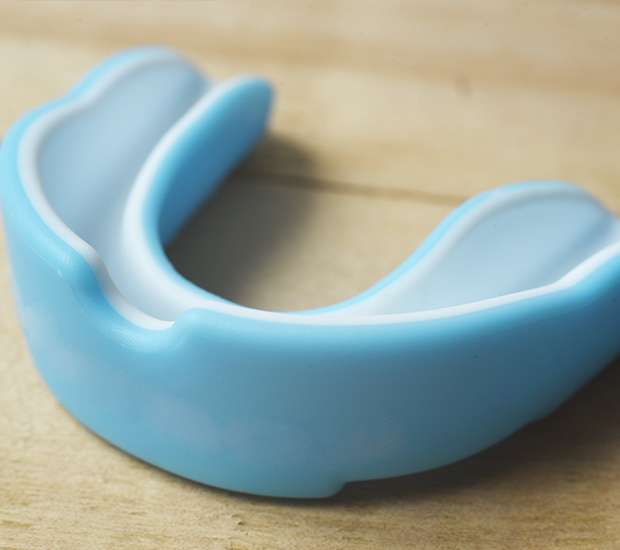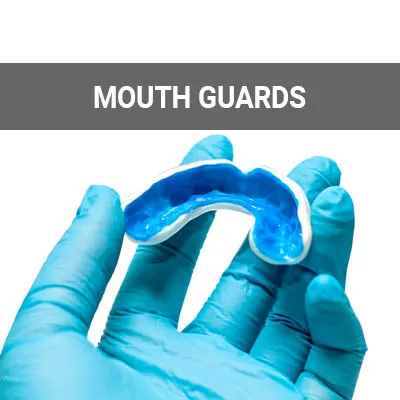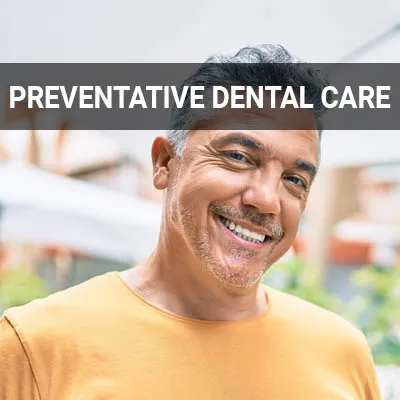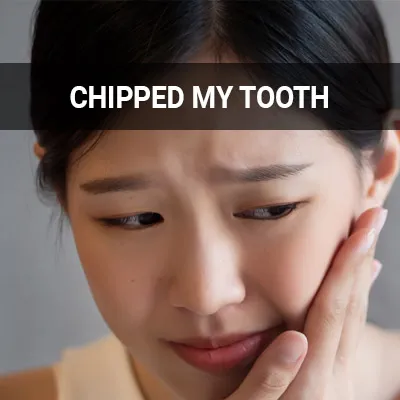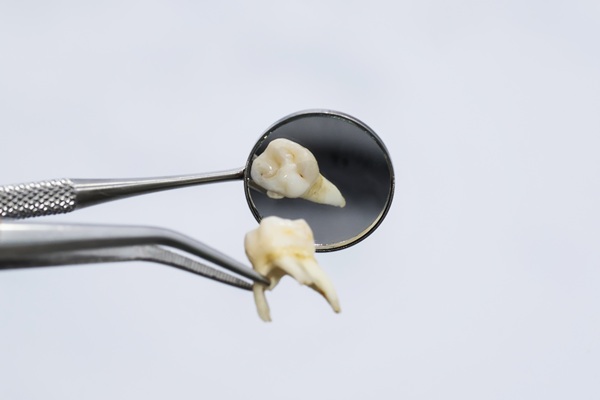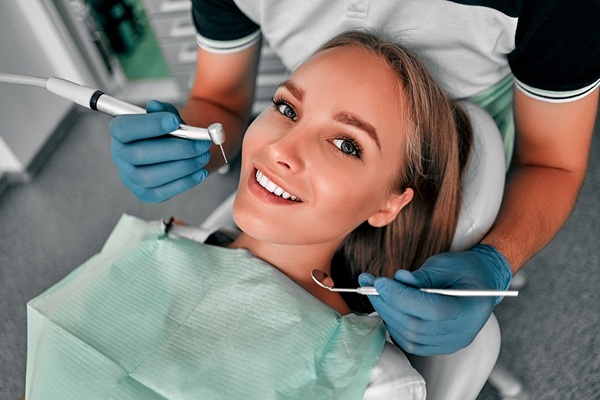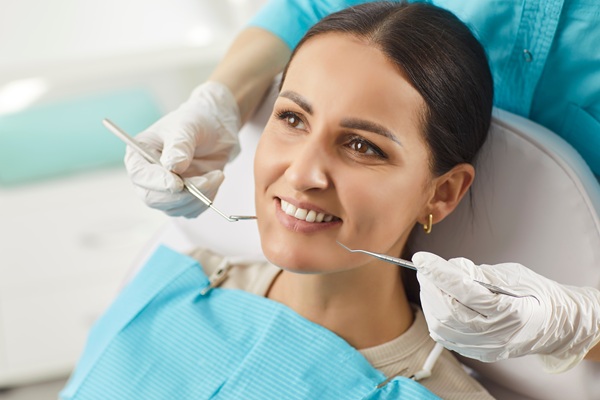Reduce Sports Injuries With Mouth Guards Brooklyn, NY
A mouthguard is a soft piece of plastic molded to fit over the teeth of the upper jaw. Without one, anyone who participates in physical activity increases their likelihood of an injury to the teeth and soft tissues of the mouth.
A custom-fit mouthguard offers the ideal option to ensure athletes have the proper protection. Custom-fit mouthguards are available at Nostrand Dental in Brooklyn and the surrounding area. Call us at (718) 513-9685 to find out why a custom option is the better choice.
The Dangers of Not Using a Mouthguard
For more than half a century, the American Dental Association has recommended the use of a properly-fitted mouthguard to reduce the risk of oral injury while participating in sports. Although mouthguards do not guarantee someone will not sustain an oral injury, athletes become 60 times more likely to get hurt when not wearing one. Hard hits and flying projectiles can all translate into a nightmare for the teeth and jaw.
A custom-fitted mouthguard, worn over the top teeth, protects the teeth from the surrounding soft tissue, absorbs shock, and stabilizes the jaw during a hit. Consider many risks associated with not wearing a mouth guard, including broken or lost teeth, jaw injuries, lacerated lips and cheeks, and damage to orthodontic appliances.
Broken or Lost Teeth
Teeth, although hard, can break. Playing sports without a proper mouthguard leaves the teeth at risk of taking a hard blow without any cushion. This can cause teeth to crack, fracture, or even fall out completely. A cracked or damaged tooth signifies a severe dental emergency.
Jaw Injuries
Jaw injuries commonly occur in sports. Mouthguards prevent or greatly reduce their seriousness by cushioning the jaw and reducing the amount of shock it takes during a hit. Teeth, designed to chew food, can also do damage to the soft tissues of the mouth when left uncovered. A mouthguard can help protect the mouth from punctures or lacerations.
Damage to Orthodontic Appliances
Braces or other orthodontia present a unique challenge that only a custom-fit mouthguard done at a dentist's office can address. This type of mouthguard can be made for the upper and lower teeth. It will not only protect the teeth but also prevent the metal wires and brackets from potentially ripping into the soft tissues of the mouth.
“Hard hits and flying projectiles can all translate into a nightmare for the teeth and jaw.”
The Risks of Store-Bought Alternatives
Not all sports mouthguards are created equally. A custom mouth guard fitted by a dentist will provide the most protection as it offers a tailored fit for the unique shape of the upper teeth. This level of smile security cannot be matched by a generic mouthguard found at a sporting goods store.
Stock and boil and bite mouthguards take the "one size fits all" approach to protecting the teeth and jaws. As a result, they remain uncomfortable and make it difficult for players to breathe or talk. Generic mouthguards tear easier, do not fit correctly, and consist of a weaker material, which are not enough when playing contact sports.
An investment in a custom-fit mouthguard also represents an investment in an athlete's long-term oral health. The materials used remain durable, yet still allow the athlete to breathe and talk with ease. However, using a temporary mouth guard while waiting for a custom one remains better than not wearing one at all.
“Stock and boil and bite mouthguards take the ‘one size fits all’ approach to protecting the teeth and jaws.”
Long-Term Effects of Sports Injuries to Teeth
Over a quarter of dental-related injuries happen while playing sports. An oral-facial injury rarely life-threatening, can be extremely painful and require additional attention as the athlete ages. To avoid long-term oral health problems after a sports-related tooth injury, seek treatment immediately.
Not wearing a mouthguard significantly increases the risks for serious dental injury while playing sports. Hits to the mouth can result in the loss of a tooth, or the need for a root canal to avoid infection. Missing teeth and the subsequent replacement, fractures and cracks will need special attention for the rest of an athlete's life. A custom-fitted mouthguard offers the first line of defense.
“An oral-facial injury, rarely life-threatening, can be extremely painful and require additional attention as the athlete ages.”
Check out what others are saying about our dental services on Yelp: Reduce Sports Injuries With Mouth Guards in Brooklyn, NY
How Mouth Guards Are Designed
Ideally, a mouth guard should be properly fitted and customized to the patient's mouth and oral structures. It should also be made of resilient material to cover all teeth on one arch and stay in place comfortably and securely. These factors allow the mouth guard to sit comfortably and securely in the mouth, ensuring one's safety and comfort.
Custom-made mouth guards are made by having the dentist create an impression of the patient's teeth. They then trim and polish the impression, double-checking for the proper fit. Just as no two patients are the same, each mouth guard is also unique. Custom-made mouthguards can provide the most effective adaptability, fit, and efficacy when compared to other options.
“Custom-made mouth guards are made by having the dentist create an impression of the patient’s teeth.”
Questions Answered on This Page
Q. What are the dangers of not using a mouthguard?
Q. What are the risks of using a store-bought mouthguard?
Q. What are the long-term effects of a sports injury to the teeth?
Q. How are custom-made mouth guards made?
People Also Ask
Q. How is a custom mouth guard made?
Frequently Asked Questions
Q. How long do mouth guards last?
A. It depends on how frequently you use it. However, with proper care, a custom-made mouth guard should last several years. Store-bought ones tend to be less durable, as they are not tailored for the mouth. Remember to bring your mouth guard with you to your dental checkups for regular inspection.
Q. How can I get a mouth guard?
A. Call us today, and we will schedule you for an initial consultation. We can begin the process of creating a dental mouth guard once we determine your candidacy. You will need to first undergo a physical examination and get some impressions taken of your mouth.
Q. What are mouth guards made of?
A. The answer varies on a case-by-case basis. Many mouth guards are made of acrylic, while others are made of acetate, vinyl, or rubber. Mouth guards may also be made of a combination of two or more of the above. We combine both hard and soft elements to ensure durability and comfort.
Q. How should I clean my mouth guard?
A. It is essential to clean your mouth guard regularly. First, rinse in warm water to get rid of any plaque and debris. Then, brush the mouth guard with a soft-bristled toothbrush. Do not use toothpaste, as it may be too abrasive. Let the mouth guard air dry completely to prevent rapid bacterial growth, and always store it in a case when not in use.
Q. Can I wear a mouth guard even if I have braces?
A. Yes. We can devise special mouth guards for persons with orthodontic devices or fixed dental work. It is crucial for these patients to adequately protect the mouth, lest the teeth suffer orofacial damage leading to soft tissue injuries.
Family Dental Terminology
Learn More About Custom Mouthguards for Sports
A custom-fit mouthguard represents a vital piece of protective equipment for any athlete. To schedule an appointment, call us at 718-513-9685 to let Nostrand Dental in Brooklyn for more assistance.
Helpful Related Links
- American Dental Association (ADA). Glossary of Dental Clinical Terms. 2024
- American Academy of Cosmetic Dentistry® (AACD). Home Page. 2024
- WebMD. WebMD’s Oral Care Guide. 2024
About our business, license, and website security
- Nostrand Dental was established in 1998.
- We accept the following payment methods: Cash, CareCredit, Check, Discover, MasterCard, and Visa
- We serve patients from the following counties: Kings County, New York County, Richmond County, Queens County, and Nassau County
- We serve patients from the following cities: Brooklyn, Manhattan, Queens, Staten Island, and Long Island
- NY (License #46702). View License Information and Specifics
- National Provider Identifier Database (1457434540). View NPI Registry Information
- Norton Safe Web. View Details
- Trend Micro Site Safety Center. View Details
Back to top of Reduce Sports Injuries With Mouth Guards
